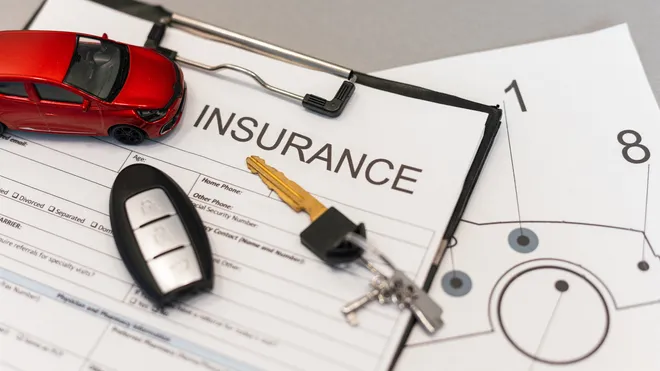Car insurance is one of the essential expenses for vehicle owners. While it provides financial protection, many drivers wonder if their insurance premiums will decrease after a period—especially after six months. If you’re asking, “Will my car insurance go down after 6 months?”, you’re not alone.
This blog will dive deep into the factors that influence your car insurance rates, what typically happens after six months, and strategies you can use to potentially lower your premiums over time. Understanding how car insurance works can empower you to make smarter choices and save money.
Understanding How Car Insurance Premiums Are Calculated
Before discussing if your car insurance will go down after six months, it’s important to understand how insurers set premiums.
Key Factors Affecting Car Insurance Rates
Insurance companies use complex algorithms and data to price policies. Common factors include:
- Driving History: Accidents, tickets, claims, and violations increase risk.
- Vehicle Type: Make, model, year, safety features, and repair costs.
- Location: Where you live impacts risk (urban vs. rural, theft rates).
- Coverage Level: Higher coverage limits and lower deductibles cost more.
- Credit Score: In many states, insurers use credit-based insurance scores.
- Age and Gender: Younger drivers typically pay more; gender can influence risk profiles.
- Annual Mileage: More miles driven increases risk exposure.
- Claims History: Past insurance claims affect future premiums.
Will Car Insurance Go Down After 6 Months?
The Short Answer: It Depends
There is no guaranteed universal rule that car insurance automatically drops after six months. However, many drivers experience some changes to their rates after this period based on several reasons.
Why Your Rate Might Go Down After Six Months
- No Claims or Accidents During the Period
If you maintain a clean driving record with no accidents or claims for six months, some insurers may reward you with discounts or rate reductions at your policy renewal. - Insurance Company’s Initial Pricing Strategy
New policies sometimes start higher to account for uncertainty around new drivers or new risk profiles. After six months, insurers have data on your driving and may adjust premiums accordingly. - Policy Renewal Adjustments
Most car insurance policies renew every six months or annually. When your policy renews, the insurer reevaluates your risk factors and may offer lower premiums if your profile has improved. - Discounts Becoming Applicable
Some discounts like good driver, low mileage, or safe vehicle discounts may apply after six months if you meet certain criteria.
Why Your Rate Might Not Go Down After Six Months
- No Change in Risk Profile
If your risk factors remain the same (e.g., same car, same location, no change in driving habits), your insurer might keep your rates steady. - Increased Risk Factors
New tickets, accidents, or claims during the six months can increase premiums. - General Rate Increases by the Insurer
Insurance companies periodically raise rates due to inflation, repair costs, or increased claims in your area. - Coverage Changes or Add-Ons
Adding more coverage or lowering deductibles can increase premiums.
The Role of the Policy Renewal Period
Most car insurance policies operate on six-month or 12-month terms. At renewal, your insurer reviews:
- Your driving record during the policy period
- Any claims you filed
- Updated credit or demographic information
- Changes in coverage or discounts eligibility
- Local market conditions and insurer’s pricing strategies
How Renewal Impacts Your Premium
- Possible Premium Reduction: If you had no claims or tickets, insurers may lower your rate or keep it stable.
- Premium Increase: Even without incidents, external factors like market trends or regulatory changes can cause increases.
- Policy Review Opportunity: Renewal is your chance to shop around or negotiate with your current insurer.
Factors Influencing Rate Changes After Six Months
1. Driving Record During the Six Months
Safe driving with no tickets or accidents often leads to lower premiums at renewal. Conversely, any infractions can cause hikes.
2. Claim Activity
Filing claims during the policy period generally increases your premiums since it signals higher risk.
3. Changes in Credit Score
If your credit score improves, insurers may offer better rates; declines can lead to increases.
4. Changes in Vehicle Value or Condition
Selling or upgrading your vehicle can influence your insurance costs.
5. State Regulations
Some states have laws limiting how much and how often insurers can increase premiums.
Strategies to Lower Your Car Insurance After Six Months
If you want your premiums to go down, consider these approaches:
1. Maintain a Clean Driving Record
Avoid tickets and accidents — the best way to keep premiums low.
2. Shop Around at Renewal
Get quotes from multiple insurers and consider switching to save money.
3. Increase Your Deductible
Higher deductibles lower premiums but increase out-of-pocket costs for claims.
4. Use Discounts
Ask your insurer about discounts for good drivers, bundling policies, low mileage, or safety features.
5. Reduce Coverage on Older Vehicles
For older cars, consider dropping collision or comprehensive coverage to save money.
6. Improve Your Credit Score
Better credit often leads to better insurance rates in many states.
7. Bundle Insurance Policies
Combine car insurance with home or renters insurance for multi-policy discounts.
When Does Car Insurance Usually Decrease?
- After One Year: More insurers may reward drivers with no claims after one full policy year.
- Long-Term Safe Driving: Consistently safe drivers over several years generally enjoy the lowest rates.
- When You Change Providers: New customers often receive promotional rates.
- Life Changes: Moving to a lower-risk area or changing jobs can reduce premiums.
What to Expect If Your Insurance Goes Down After Six Months
If your premium decreases:
- You may receive a lower renewal notice or credit/refund.
- Your insurer will notify you of any discount applied.
- Be aware that future changes (new tickets, claims) can raise rates again.
What to Do If Your Insurance Doesn’t Go Down After Six Months
- Review Your Policy: Ensure there are no unnecessary coverages.
- Call Your Agent: Discuss why your rate stayed the same or increased.
- Request a Re-Evaluation: Some insurers allow mid-term adjustments if circumstances change.
- Shop Around: Compare quotes from other insurers.
- Consider Usage-Based Insurance: Pay-as-you-drive programs can lower costs for safe drivers.
Common Misconceptions About Car Insurance Premiums and Time
- “My rates will always drop after 6 months.” Not necessarily—rates depend on your risk profile.
- “If I don’t file claims, my insurance must go down.” No claims help but don’t guarantee reductions.
- “Only new drivers have high initial premiums.” Existing drivers’ rates can fluctuate for many reasons.
- “Insurance companies reward all drivers equally.” Discounts and reductions vary by insurer and state.
How Insurers Use Data Over Time to Adjust Rates
Insurance companies track your driving patterns, claims, and payments over time. After six months, they have better data to price your risk more accurately. For example:
- If you had no accidents, you might qualify for a “safe driver” rating.
- If you had one minor accident, your rate might increase moderately.
- If your credit score improved, you might get better rates.
Data-driven insurance means premiums can go up or down based on your behavior and risk profile.
FAQs About Car Insurance Rates and Six-Month Periods
Q1: How often can my car insurance premium change?
A1: Typically at policy renewal (6 or 12 months), but some insurers adjust mid-term due to changes in risk or state rules.
Q2: Will my insurance premium drop if I don’t file claims?
A2: Possibly, but it depends on your insurer’s policies and other factors like your driving record and credit.
Q3: Can switching insurance companies save me money after 6 months?
A3: Yes, shopping around can lead to lower rates, especially if your current insurer doesn’t offer discounts.
Q4: Does having a clean driving record guarantee a lower premium after 6 months?
A4: Not guaranteed, but it significantly improves your chances of premium reductions.
Q5: How do insurance companies verify my driving record?
A5: They check motor vehicle records from your state’s Department of Motor Vehicles (DMV) regularly.
Conclusion: Will Your Car Insurance Go Down After 6 Months?
In summary, whether your car insurance goes down after six months depends on many variables including your driving behavior, claims history, insurer policies, and market conditions. While it’s common for rates to stabilize or even decrease after a clean six months, there are no guarantees.
The best approach is to maintain safe driving habits, monitor your coverage needs, explore discounts, and shop around at each renewal. Being proactive about your insurance can help you manage costs and avoid surprises.
Read more:
- The Rise of InsurTech: 10 Moments Covering the Transformation of the Industry
- The Essential Guide to Short and Long-Term Insurance Benefits for Seniors
- The World Is Wooing U.S. Researchers Shunned by Trump
- How Will the 2025 Budget Reconciliation Affect the ACA, Medicaid, and the Uninsured Rate?
- Tariff Truce With China Demonstrates the Limits of Trump’s Aggression




